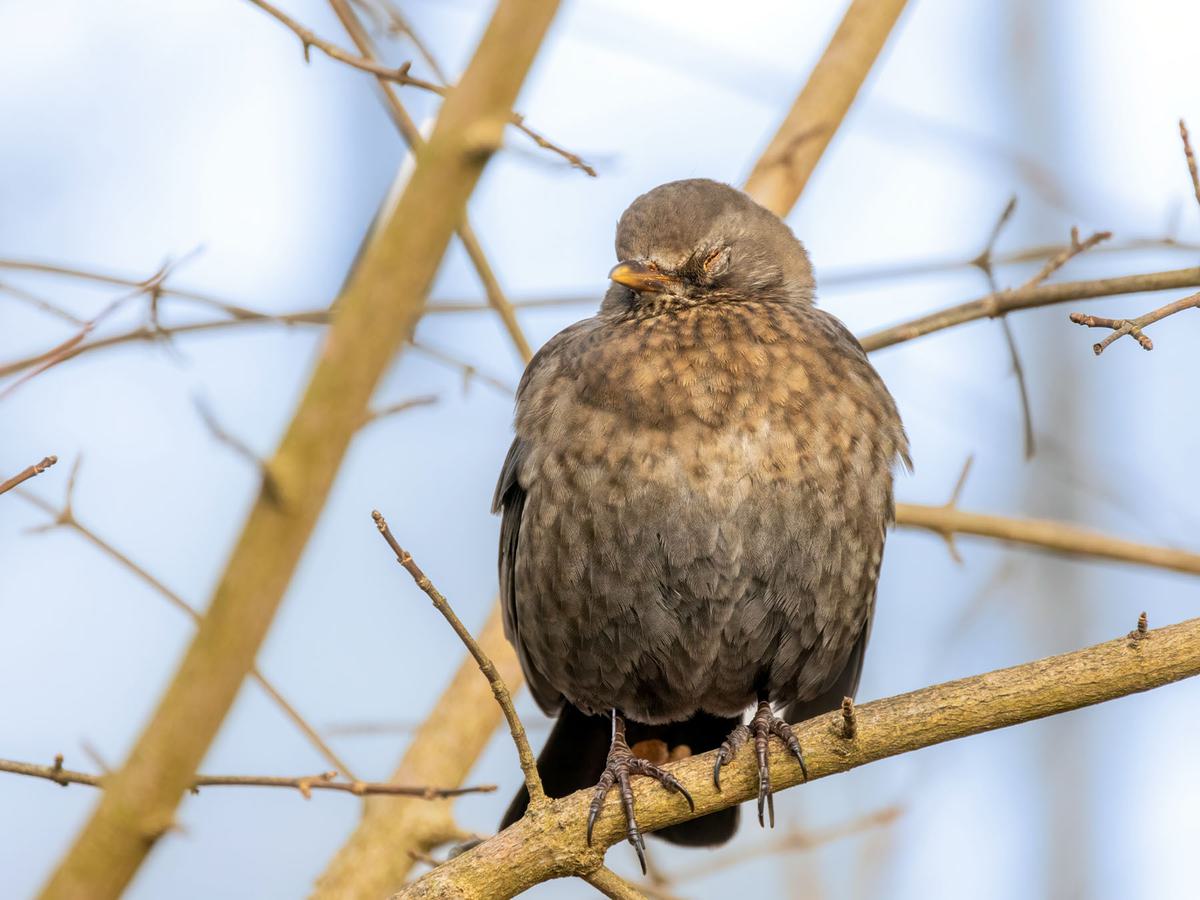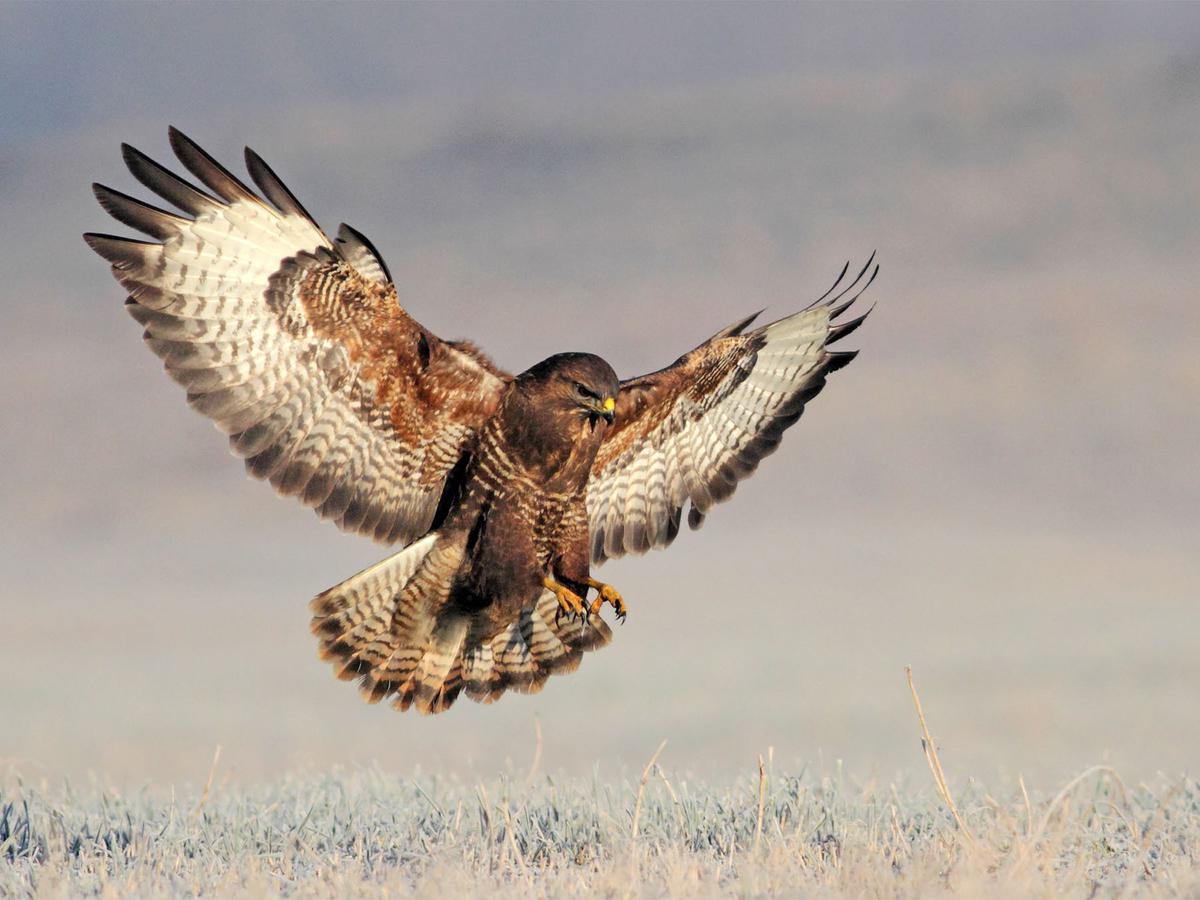Endocrine and Hormonal Regulation

The avian endocrine system consists of a series of glands that produce and secrete substances known as hormones. These steroids or proteins travel through the bloodstream and act as chemical messengers that regulate behaviors and the functioning of various organs in the body.
While the endocrine system is also responsive to environmental stimuli, it is slower than the nervous system because it works by chemical messengers (hormones) rather than electrical impulses. Nevertheless, these hormones are vital for coordinating everything from daily sleep patterns to reproductive behaviors and self-preservation in emergency situations.
There’s much more to learn about bird glands and hormones. So, read along because this introductory guide will help you understand the avian endocrine system, a fascinating but often overlooked chapter of bird physiology!
Overview of the Avian Endocrine System
Hormonal Glands and Their Roles
The avian endocrine system comprises several key glands located in the brain and elsewhere in the body. Multiple glands may work together in an ordered collection known as an axis, and the hormones they produce are regulated by a sort of monitoring system called a feedback loop.
Continue reading to learn about the avian endocrine glands and their functions.
Major Avian Glands
Pituitary gland
This important endocrine gland is located at the base of a bird’s brain. It is regulated by the nearby hypothalamus and produces hormones such as prolactin, thyroid-stimulating hormone, and follicle-stimulating hormone. The role of the anterior and posterior pituitaries is to control other glands that regulate diverse physiological processes such as reproduction and metabolism.
Thyroid glands
Birds have paired thyroid glands situated at the base of the neck. These glands produce hormones such as triiodothyronine and thyroxine, which are essential for various bodily functions, including growth, metabolism regulation, and thermoregulation.
Parathyroid and ultimobranchial glands
Birds control calcium levels in their body through hormones secreted by the parathyroid and ultimobranchial glands, both of which are situated near the thyroids. Calcium is important for egg and bone development, as well as blood clotting and muscle and nervous system functioning.
Adrenal glands
Birds have a pair of adrenal glands located near the kidneys. These glands produce the hormones corticosterone, aldosterone, epinephrine, and norepinephrine. Hormones produced in the adrenal glands have important functions in digestion and metabolism but also affect heart rate and stress response.
Pineal gland
This small gland is located within the brain, where it works as the body’s built-in clock. It produces melatonin at night, which provides an important cue for maintaining daily rhythms and activity patterns.
Gonads
Gonads function as reproductive organs and endocrine glands that produce hormones. Testes are paired male gonads, responsible for testosterone and progesterone production, while the ovaries of female birds produce estrogen and progestogens.
Basic Hormone Functions
Hormones regulate all the physiological processes that occur in a bird’s body, including growth, temperature regulation, appetite, and stress responses. They also control seasonal and daily behaviors like sleep, migration, and social interactions.
Hormones are transported through blood via the vascular system and work by binding with receptors in specific target organs and tissues. Peptide hormones communicate with receptors in cell membranes, while steroid hormones enter the cell’s nucleus.

Hormones produced in the adrenal glands have important functions in digestion and metabolism but also affect heart rate and stress response. Female Bluethroat
Hormones and Daily Avian Life
Circadian Rhythms
Hormones produced by the endocrine system control the circadian rhythm - the body's natural daily cycle. Birds keep time with sensory input from the retinae and pineal glands that secret a hormone known as melatonin each night.
Some birds that change their activity patterns dramatically during migration or live at latitudes where day length changes drastically can adjust their melatonin amplitude to keep pace under these irregular conditions.
Feeding and Metabolism
Appetite and feeding are regulated in part by the hypothalamus, which is important for maintaining a healthy body weight. In the short term, regulating daily food intake also has obvious effects on a bird’s ability to fly!
Various hormones are involved in regulating avian digestion and energy absorption, including corticosterone, produced in the adrenal glands, and insulin and glucagon, produced in the pancreas.
Hormones released by the thyroid gland serve an important function in regulating a bird’s metabolic rate and heat generation.
Hormonal Influence on Bird Behavior
Territoriality and Aggression
Territoriality and aggression are common among birds and often highly seasonal in occurrence, stimulated by changes in day length and resulting hormonal changes in the endocrine system. These important behaviors are most apparent when competition for resources or breeding opportunities is high.
Aggressive behaviors are usually (but not always) correlated with increased testosterone levels, particularly during the courtship and nest-building phases of the reproductive cycle. Testosterone levels decrease after egg laying, however, so other hormones may be at play during non-breeding seasons.
Social Behaviors and Communication
Social behaviors are typical among birds from various families and have significant benefits for predator avoidance, foraging, and survival. The hormones mesotocin and arginine vasotocin are thought to control important social behaviors like pair and large group formation.

Regulating daily food intake also has obvious effects on a bird’s ability to fly! Canada Geese
The Endocrine System in Health and Disease
Disease and Disorders
Disorders of the avian endocrine system can cause over or underproduction of hormones that affect various bodily functions and result in many different symptoms, including obesity, failure to reproduce, blindness, and feather abnormalities.
Examples of avian endocrine disorders include goiter and various types of diabetes. Hypoactive or hyperactive hormone secretion may be caused by stress, physical trauma, lesions, tumors, or iodine deficiencies.
Role in Immune Function
Hormones can have significant effects on a bird’s immune system and affect its health and likelihood of being caught by a predator. Corticosterone, a stress hormone secreted by the adrenal glands, can suppress the immune system, leaving stressed birds more vulnerable to infection and disease.
Seasonal changes in hormone production also affect the immune system. Increased testosterone levels in the breeding season can reduce a male bird’s immune response, but this is a trade-off necessary to increase their chance of successful reproduction. The role of female sex hormones in immune function are less clear.
Research and Advances in Avian Endocrinology
Current Research Trends
In recent years, some scientists have focused on progressive studies on avian endocrinology, focusing on important contemporary topics like the impacts of urbanization on bird endocrine systems and highlighting the importance of studying female bird endocrinology and avoiding historical binary assumptions and biases.
Technological and Methodological Advances
Scientists have been studying the endocrine system for well over a century, although there is still much to learn about this fascinating but complex field of physiology.
Starting with relatively crude experiments in the 19th century, researchers studying behavioral endocrinology have made great strides, progressing to closely examine the concentrations and physiological and behavioral effects of hormones and explore the function of their receptors.

In recent years, some scientists have focused on progressive studies on avian endocrinology, focusing on important contemporary topics like the impacts of urbanization on bird endocrine systems. Hooded Crow
Summary
Hormones of the endocrine system work behind the scenes to regulate the fascinating and complex bodily functions of every living bird.
Studying the finer details of these physiological processes may be beyond the reach of the average bird watcher, but you don’t need a laboratory to see the expression of this fine-tuned system in everything from feeding to breeding and territorial displays!


